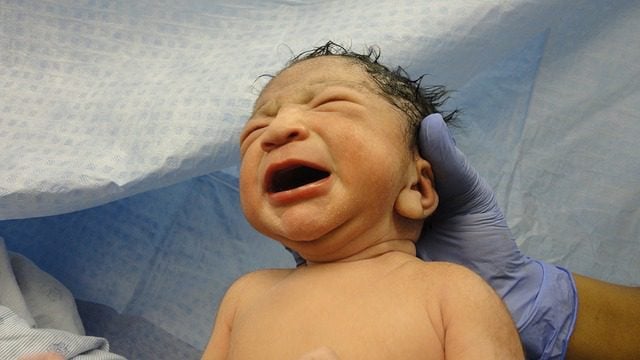
Christians who don’t believe in baptizing infants generally hold to the notion of “the age of accountability.” This means that children below a certain age (which varies) do not really sin because they don’t know what they are doing and therefore are not accountable. After they reach that point, they can understand their sinfulness, repent, and make a “decision” for Christ.
An article in the evangelical publication Christianity Today recounts some fascinating experiments that show that infants do, in fact, have a moral sensibility.
I don’t know that these experiments can address the question of “accountability,” but they do show that infants are not blank slates, to be programmed as we will. Rather, they are complex human beings with an innate sense of right and wrong.
And thus, we Lutherans say, they are good candidates for baptism.
FURTHER THOUGHT: These experiments also provide evidence that the Law is “written on the heart” (Romans 2:15), rather than morality simply being a social construction, as is often assumed today.
Rebecca Randall, What Science Says About the Age of Accountability… | Christianity Today:
Christians have tended to consider whether babies have a sin nature. The emphasis is on culpability—are children capable of right and wrong? Parents know even young children are capable of behaving badly or well. Because of this, Christians have debated an age of accountability, attempting to account for how God might still save children who haven’t reached an age when they understand their sin.
Yet as modern science asks questions about babies’ morality, it helps us consider human nature as morality developed throughout our lives from infanthood to our senior years. What we find is not so black and white but a developed sense of morality resulting from a mix of nature and nurture.
Can My Baby Sin?
First, in contradiction with early philosophers, psychologists are finding that humans aren’t a blank slate at birth. As Paul Bloom, the author of Just Babies: The Origins of Good and Evil concludes, “With the help of well-designed experiments, you can see glimmers of moral thought, moral judgment and moral feeling even in the first year of life. Some sense of good and evil seems to be bred in the bone.”
[Keep reading. . .]















